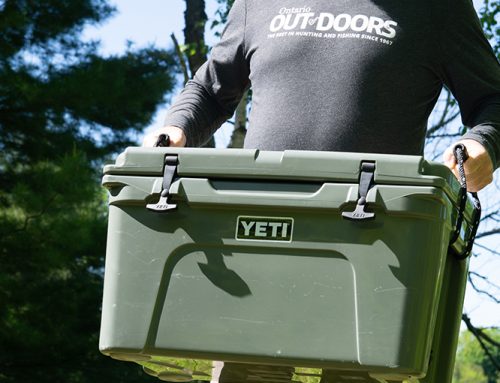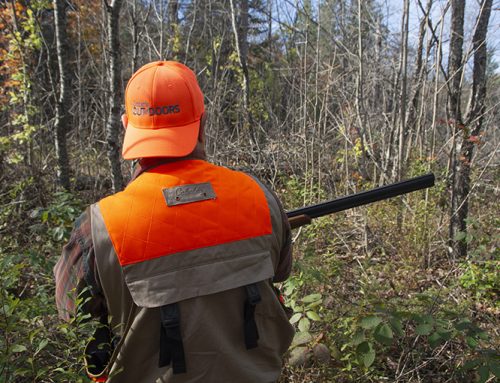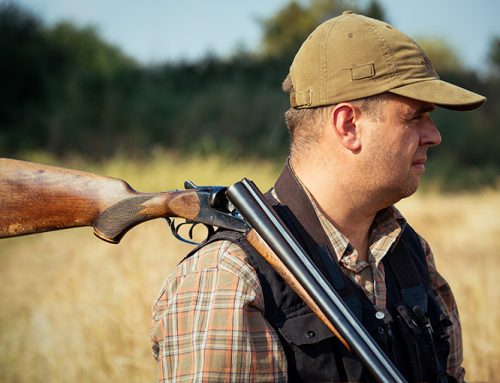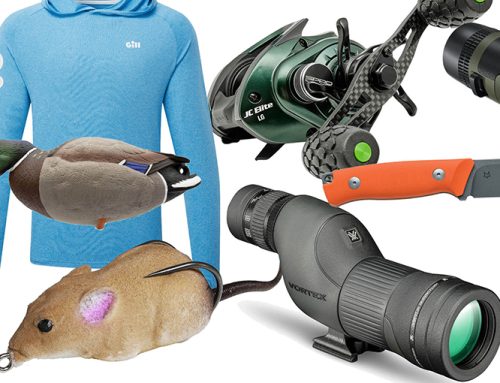
The best finish to an upland or waterfowl hunt is the top-rated table fare that wild game provides. Hunting is pointless, however, if your retriever bites ducks or grouse, making them unfit to eat. A bird that is torn, punctured, and mutilated by the dog is a waste of wildlife.
Preventing retriever bites
If you are getting a new pup, you can head off this problem by doing some research on the pup’s parents. Some hard-mouth behaviour is genetic, so you can verify that the parents are soft mouthed to begin with. Teaching a dog to use its mouth gently begins at puppyhood. Allow the dog to mouth your hand gently, but when it bites down hard, yell loudly and put the pup in the kennel for a few minutes. It will soon learn that biting down hard ends the game.
Puppy play like tug-of-war teaches the pup to crunch down hard with its teeth. Playing keep away or chasing the pup to get the toy teaches the pup to be possessive and bite down hard. Toys that squeak when the pup bites them reward the pup for biting down hard. Don’t allow family members to play these games if you want a soft-mouthed retriever.
Playing with pressure
The next step to a soft mouth is to teach the older pup appropriate pressure for holding things in its mouth. Do this in short daily sessions with a gloved hand while the dog is on a bench. Press the dog’s lips against its teeth so it opens its mouth. Say “fetch” and slide your gloved hand into the dog’s mouth palm up. Praise the dog for holding your hand gently but firmly. If the dog bites down too hard, squeeze his lips against his teeth to relax his grip. If the dog goes slack jawed with not enough pressure on your hand, push down on his lower jaw. By reflex it will tighten his grip.
After the dog has gripped your hand for several seconds with the right pressure, say “give” and press his lips against its teeth to relax his grip. Remove your hand. Eventually the dog will learn to let go when you say “give.” Praise the dog for the right pressure and reward with a treat after the session. This teaches the dog the right pressure for everything he will ever fetch.
Moving to feathers
When the dog opens his mouth voluntarily when you say “fetch” and grips your hand consistently with appropriate pressure, transition to sliding a small training dummy into the dog’s mouth. Once the dog is comfortable with the dummy, start using real birds. The transition to feathers is the toughest because as you can imagine, it’s strange for the dog to have a mouth full of feathers, so be gentle yet persistent at this stage. Keep your gloved hand in the dog’s mouth with the bird to gauge appropriate pressure and reward him with praise or quickly make corrections.
The other key training step to prevent hard mouth is conditioning the dog to come to you instantly and reliably every time it’s called. Nail down perfect recall before you allow the dog to retrieve birds because the dog can’t tear up the bird while he is running with it in his mouth toward you.
Keep the dog moving so he can’t stop and begin ripping apart the bird.
It’s not food
When your dog begins retrieving birds, never let it discover that game birds are food. Learn from my mistake years ago with Bailey, my yellow lab. She was by nature a soft-mouthed and reliable retriever. Then one day in the duck blind I decided to field dress two ducks and gave her the hearts and giblets to eat. That woke up an ancient instinct asleep within her — the taste for blood.
When the next flock of ducks came in I knocked one down and sent her out to fetch it. She swam out to it but instead of bringing it to me she swam to the opposite shore of the creek and began tearing into the bird with her teeth. By the time I paddled the canoe over to her she had expertly filleted all the breast meat off the duck. I had turned a reliable retriever into one I never fully trusted with a bird after that. Though she made many more good retrieves, she always looked like she wanted to make off with the bird. I had to make sure she wasn’t hungry when we hunted after that.
Don’t tempt me
Hunger is a powerful influence in dogs. They are ravenous after hunting hard. Once, after a full day of grouse hunting, my young Brittany spaniel had pointed and retrieved several ruffed grouse, I left her alone with the birds for a few minutes. She grabbed them off the tailgate and ate the heads off them all. She didn’t tear into the breast meat so the birds were still edible. But my inattention to her hunger nearly set her on the hard-mouth path. Thankfully she is soft mouthed to this day.
Dogs should not eat heavily before running hard and any gun dog worth its kibble will be too excited to eat when it knows it is going hunting. Just don’t leave a tired, hungry dog near your game birds. Feed it right after hunting. If you want to guarantee a hard mouth in a dog, send a pair of them out to fetch one bird. It’s that easy for us to create problems in dogs and then blame the dogs.
Originally published in the August 2023 issue of Ontario OUT of DOORS






Leave A Comment